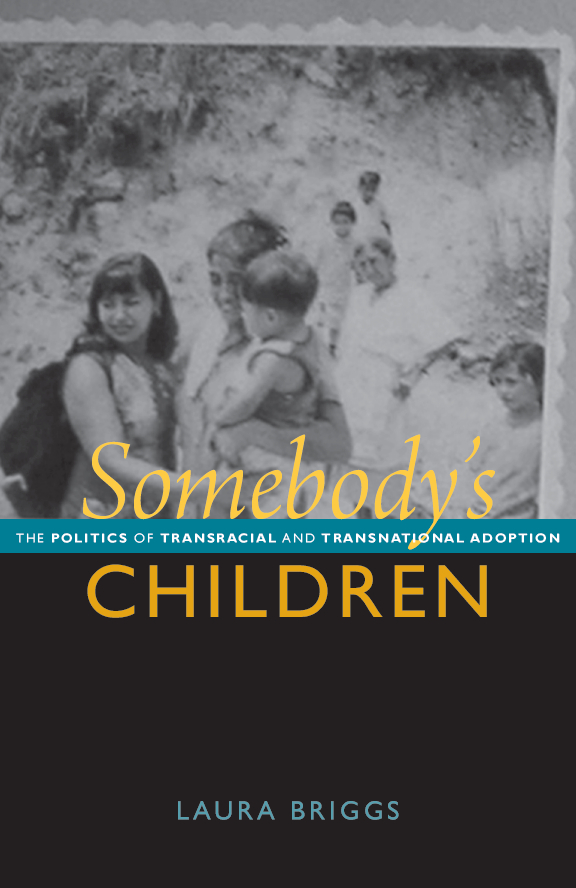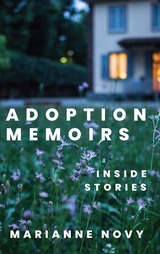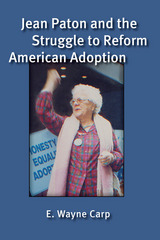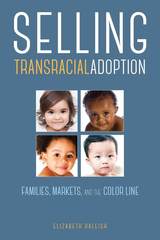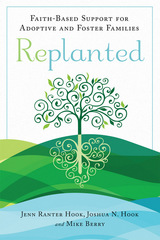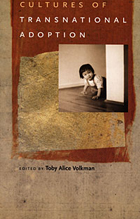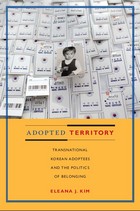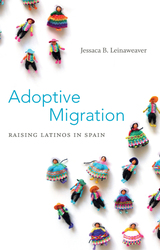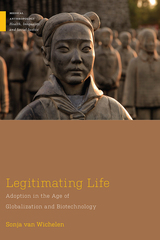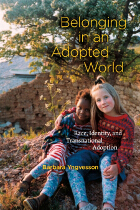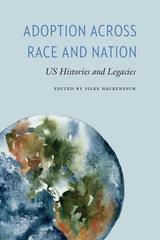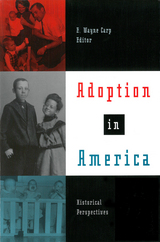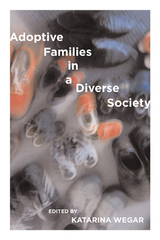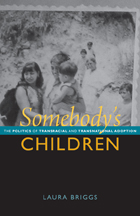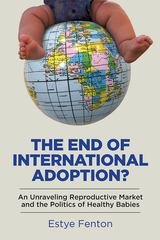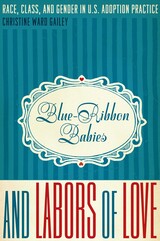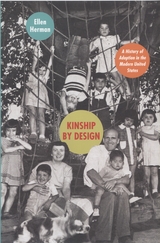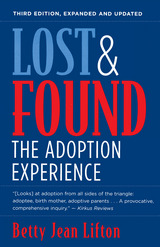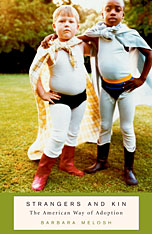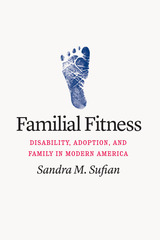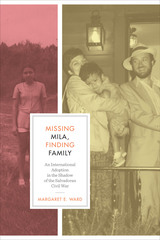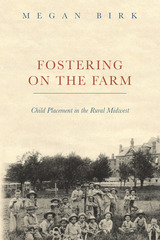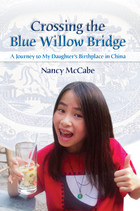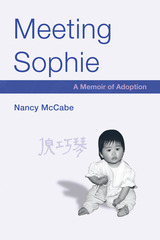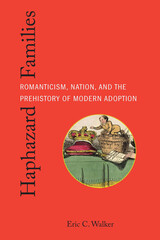“Heroic rescue narratives of 'orphaned’ brown babies—from the adoption of Native children to the fairytale story of Zahara Jolie-Pitt—often crumble under scrutiny. Briggs, who adopted a Mexican-American daughter, looks unflinchingly at the disturbing history of U.S. adoption across race and borders.” - Ms. Magazine
“Briggs shines a bright light on the ‘politics of transracial and transnational adoption.’ . . . Her provocative retelling of recent adoption history emphasizes that conservative economic forces have steadily eroded state support of children in institutions or through foster care, promoting adoption as the better alternative.” - Martha Nichols, Women’s Review of Books
“[I]n juxtaposing histories and current realities of domestic interracial adoption with those of transnational adoption from Latin America, Briggs’s work contributes to the ongoing scholarly conversation about motherhood as a key battleground in global struggles over power, rights, and wellbeing.” - Clare Daniel, H-Net Reviews
“In Somebody’s Children, Laura Briggs reminds us that [transnational] adoptions are not only about how children and parents are joined across borders. They are also just as significantly about how so many children came to be defined as adoptable in the first place.” - Jessaca B. Leinaweaver, HAHR
“[Briggs] provides a refreshing and long-overdue feminist/womanist perspective on transracial and transnational adoption practices…. This book presents a powerful argument for a reexamination and reshaping of transracial and transnational adoption policy and practices.” - Robin Spath, Affilia
“Her work shines a light on the difficult path to creating and maintaining a stance of solidarity with the poor and disenfranchised… Scholars of race, kinship, human rights, cultural politics, and U.S. and Latin American history will find the book valuable and engrossing, and might even be tempted to do more reading or research on adoption.” - Sara Dorow, Reviews in American History
"For decades, a child-saving ideology that devalues the bonds of children of color with their families and communities has served to mask social, economic, and political inequities in the United States and abroad. Laura Briggs's astute analysis exposes the historical struggles underlying this devaluation in domestic and foreign policies. Somebody's Children is essential reading for everyone concerned about the politics of adoption and the equal dignity of families worldwide."—Dorothy Roberts, author of the books Killing the Black Body, Shattered Bonds, and Fatal Invention
"I have been longing for someone to write this book for a number of years—and how fortunate we are that Laura Briggs has made this her project; she is an outstanding scholar and thinker. A brilliant and wide-ranging book, Somebody's Children makes a powerful contribution to the study of adoption. The public policy implications of Briggs's work are stunning, and I hope this book will contribute to reshaping adoption practice in the United States."—Rickie Solinger, author of Pregnancy and Power: A Short History of Reproductive Politics in America
“Briggs shines a bright light on the ‘politics of transracial and transnational adoption.’ . . . Her provocative retelling of recent adoption history emphasizes that conservative economic forces have steadily eroded state support of children in institutions or through foster care, promoting adoption as the better alternative.”
-- Martha Nichols Women's Review of Books
“Heroic rescue narratives of 'orphaned’ brown babies—from the adoption of Native children to the fairytale story of Zahara Jolie-Pitt—often crumble under scrutiny. Briggs, who adopted a Mexican-American daughter, looks unflinchingly at the disturbing history of U.S. adoption across race and borders.”
-- Ms.
"In Somebody’s Children, Laura Briggs reminds us that [transnational] adoptions are not only about how children and parents are joined across borders. They are also just as significantly about how so many children came to be defined as adoptable in the first place."
-- Jessaca B. Leinaweaver Hispanic American Historical Review
“[Briggs] provides a refreshing and long-overdue feminist/womanist perspective on transracial and transnational adoption practices…. This book presents a powerful argument for a reexamination and reshaping of transracial and transnational adoption policy and practices.”
-- Robin Spath Affilia
“Somebody’s Children offers a critically engaged history of the state politics of transnational and transracial adoption.”
-- Kim Park Nelson Signs
“As the book’s title suggests, adopted children were ‘somebody’s children,; a fact disturbingly absent from most adoption narratives. Briggs does history and family law a great service by bringing that truth to light.”
-- Joanna L. Grossman Journal of American History
“Briggs provides us with a powerful and penetrating account of the politics of transracial and transnational adoption in the USA. Through a painstaking and thorough historical analysis, Briggs articulates a nuanced account of politics, policy and practice in relation to the most vulnerable children and families – in both domestic and international adoptions. . . . The book will be of interest to scholars of child welfare and adoption, race and ethnicity, human rights, and cultural history. It should be essential reading for practitioners and policymakers in the field of adoption.”
-- Ravinder Barn Ethnic and Racial Studies
